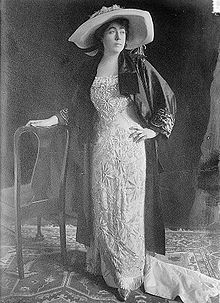Rachel Maddow reports on Mitt Romney’s confused attacks against President Obama at Friday’s NRA Conference in St. Louis. Rachel also talked with Pittsburgh councilman Ricky Burgess about the conversation the country should be having about gun violence and the need for tighter gun control laws
Andrew Rosenthal: Keep, Bear and Use
The modern drive against gun control started with an expansive interpretation of the Second Amendment as bestowing an absolute, individual right to “keep” and “bear” arms, rather than a societal right based on the need for a “well-regulated militia.”
But we are now in a new and dangerous phase of the gun movement, in which extremists led by the National Rifle Association are pushing beyond “keep” and “bear” to “use.” They are pressing state and federal lawmakers to make it easier for people to shoot other people. [..]
They certainly will not discuss these statistics, compiled by the Violence Policy Center, on the homicide rate for African Americans, which is more than three times the overall homicide rate. The overwhelming majority of victims are killed by guns, and the majority of those are killed by handguns. Missouri leads the nation in this appalling statistic.
Washington, DC–Missouri leads the nation in the rate of black homicide victimization for the second year in a row according to a new analysis of unpublished Federal Bureau of Investigation (FBI) Supplementary Homicide Report (SHR) data released today by the Violence Policy Center (VPC).
The annual study, “Black Homicide Victimization in the United States: An Analysis of 2009 Homicide Data,” (http://www.vpc.org/studies/blackhomicide12.pdf) uses 2009 data–the most recent data available from the FBI–and ranks the 50 states according to their black homicide victimization rates. The study found overwhelmingly that firearms, usually handguns, were the weapon of choice in the homicides.
Marian Wright Edelman, President of the Children’s Defense Fund: What a Difference a Gun Makes
On April 16, 2007, our nation suffered its deadliest shooting incident ever by a single gunman when a student killed 32 people and wounded 25 others at Virginia Tech before committing suicide. Five years later, have we learned anything about controlling our national gun and gun violence epidemic? A look at just a few of the sad headlines across the country so far this year suggests we haven’t learned much or anything at all. [..]
As a nation we can’t afford to keep waiting for common-sense gun control laws that would protect our children and all of us from indefensible gun violence. It’s time to repeal senseless gun laws like the “Stand Your Ground” laws enacted by 21 states that have grabbed so much attention in Trayvon’s case and allow people in Florida to defend themselves with deadly force anytime and anywhere if they feel threatened. More than two million people have signed online petitions saying they want to repeal these laws. It’s time to require consumer safety standards and childproof safety features for all guns and strengthen child access prevention laws that ensure guns are stored safely and securely to prevent unnecessary tragedies like those in Washington state. And in a political environment where the too-secretive and powerful advocacy group American Legislative Exchange Council (ALEC) pushed “Stand Your Ground” laws in other states along with other “model bills” that benefit some corporate bottom lines or special interests like the NRA, it’s time for all of ALEC’s corporate sponsors to walk away from enabling or acquiescing in destructive laws that protect guns, not children.
It’s a tragedy that five years after Virginia Tech so little has changed. How many years must we wait until tragic headlines about school shootings, children dying, and people using the “shoot first and ask questions later” defense to take the law into their own hands go away? When will we finally get the courage to stand up as a nation and say enough to the deadly proliferation of guns and gun violence that endanger children’s and public safety?
When?


 The actor Kathy Bates, who portrayed Margaret “Molly” Brown in the movie Titanic, bears an uncanny resemblance to Margaret Brown.
The actor Kathy Bates, who portrayed Margaret “Molly” Brown in the movie Titanic, bears an uncanny resemblance to Margaret Brown.
 If you have not yet made Archie’s acquaintance yet you really should. He’s a fun guy. Dances 2 or 3 nights a week,
If you have not yet made Archie’s acquaintance yet you really should. He’s a fun guy. Dances 2 or 3 nights a week,
Recent Comments